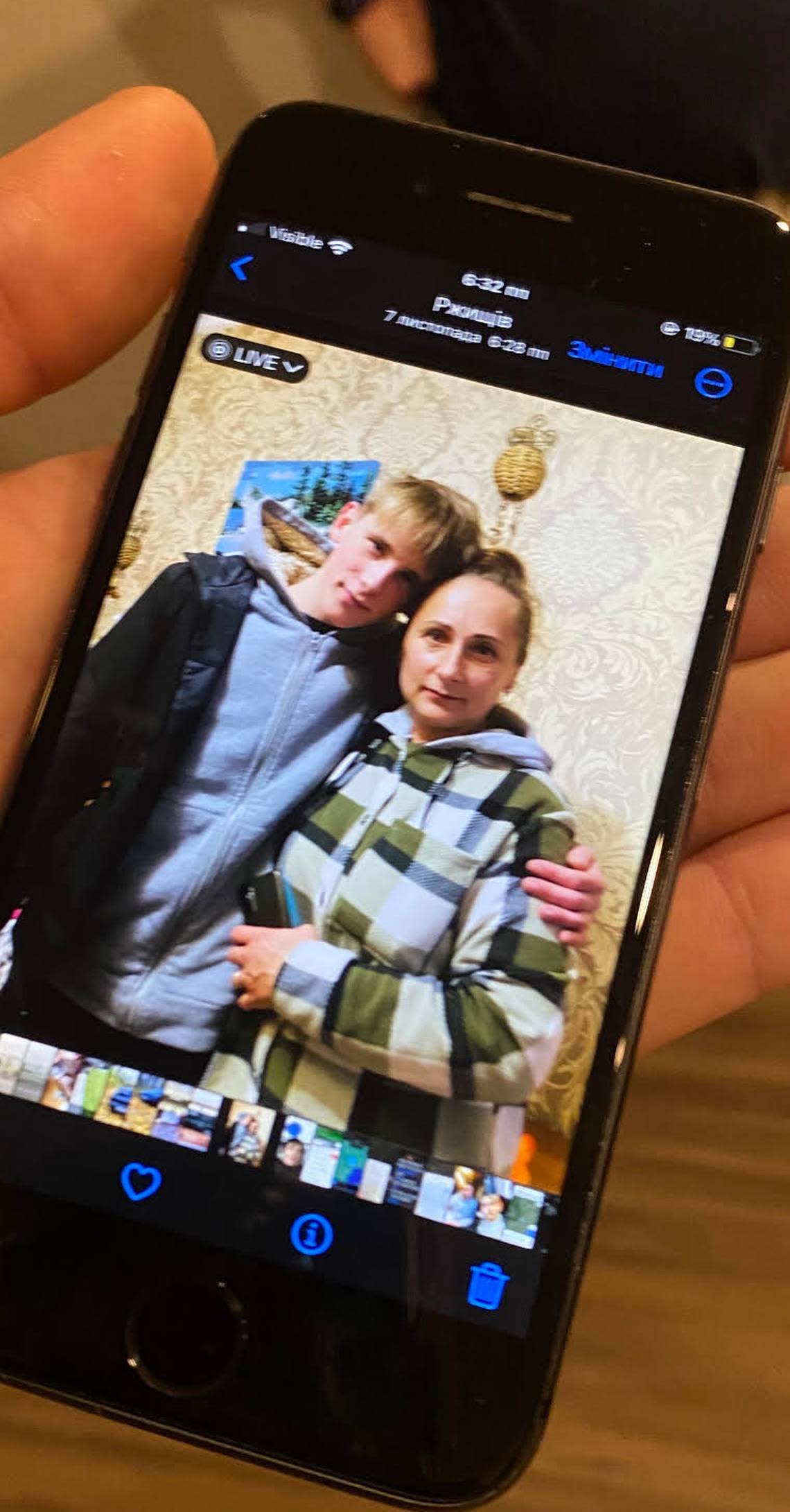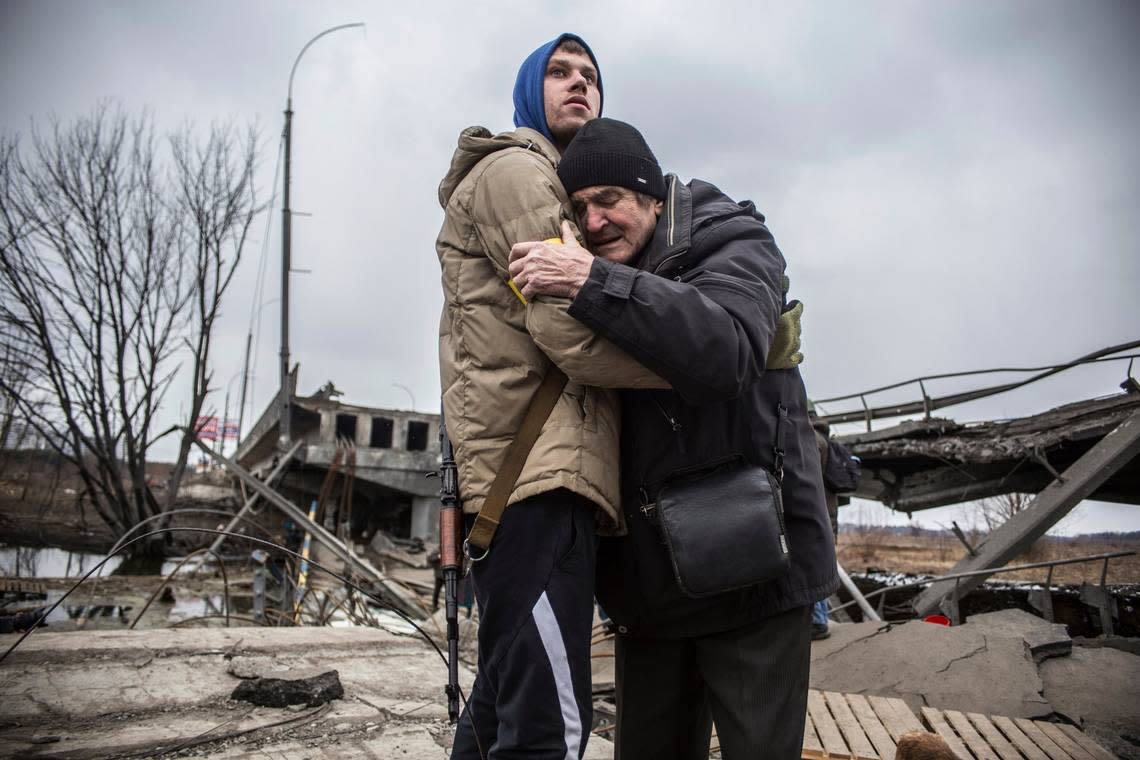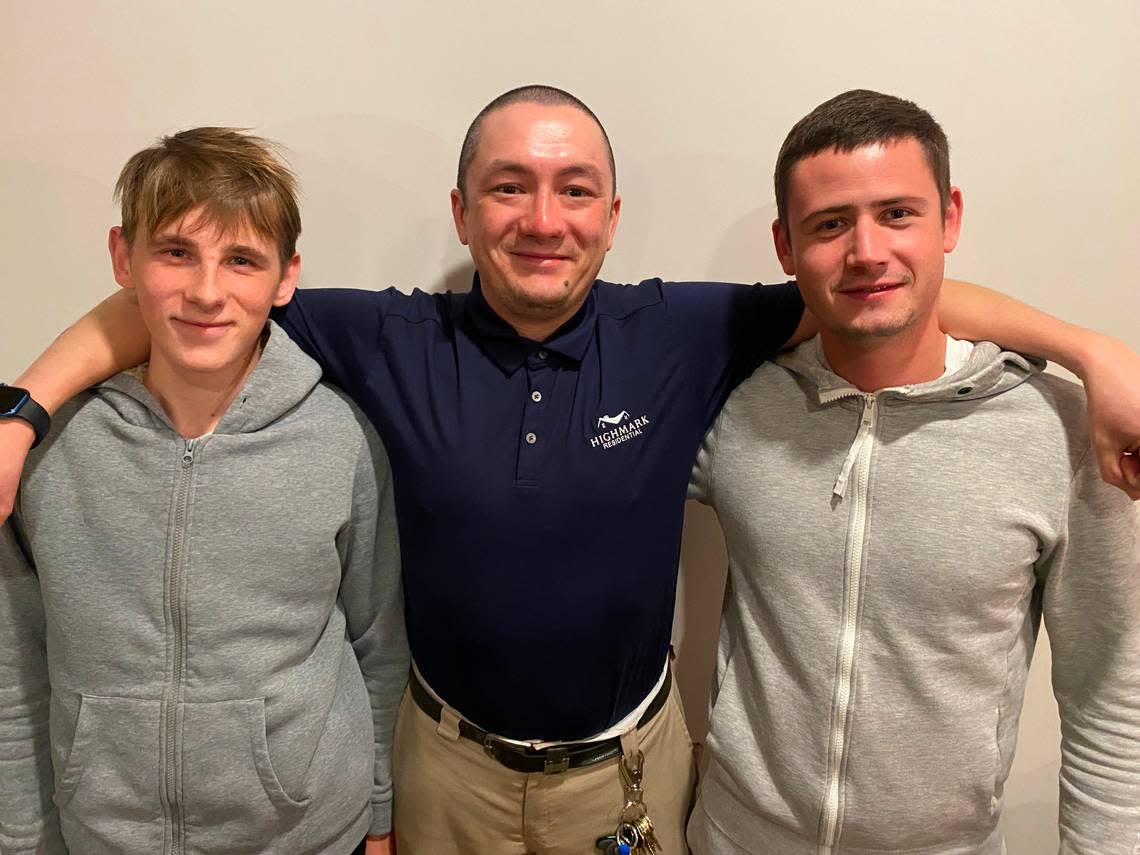From Ukraine to Raleigh, these two brave men find refuge with a Russian refugee
Two weeks ago, a pair of Ukrainian friends landed in Raleigh with only a suitcase of clothes, fleeing the punishing routine of drone attacks and air-raid sirens wailing five times a day — a war-torn life so bleak that one of them carries video footage of hometown explosions on his phone.
They looked around, fresh on North Carolina soil, and marveled at cars driving down the interstate in the middle of the day, no curfews or land mines to worry about.
“Amazing place,” said Vlad Horokhov, 20.
Once they got settled, his friend, Yevhenii Bykhovets, 27, called his mother back home, letting her know he’d arrived safely, that he had a sponsor in Raleigh, that the electricity worked and the heat came on — only to hear rockets screaming through the phone line.
“Please go to the basement,” he told her. “Do not risk yourself. I will call you later.”

Uniting for Ukraine
The pair of friends now inhabit a North Raleigh apartment through Uniting for Ukraine, a government program that allows them two-year residency with an American sponsor — in their case, Azamat Allaiarov, who came to Raleigh on his own perilous road.
In his kitchen off Litchford Road, Allaiarov described how he joined Russian protesters calling President Vladimir Putin’s 2012 election a fraud, getting beaten by police on the way to Moscow.
“The way goes to a dictator’s country,” he said. “More and more.”
Allaiarov fled to the United States through Mexico, crossing the border in Arizona and spending four months in prison waiting for an immigration hearing. He learned English while in confinement, studying legal documents, until a judge finally granted him political asylum.
Now he carries a green card and works as a maintenance technician in Durham.
“A good city,” he said.
‘For us, it’s like daily stuff’
I met all three in Allaiarov’s apartment last week, shaking hands with people so connected to a war 5,000 miles away they could take out their phones and call soldiers on the front lines.
They met as Allaiarov scanned social media sites that evade Russian censors, where he met Horokhov, who lost his car-washing business to the war and lived under constant bombardment in the city of Rzhyschiv, often without power.
“No job,” he said in admirable English. “My business is closed. Almost every night, drones flying. Problem with groceries. You can’t buy good food. For us, it’s like daily stuff.”

His friend Bykhovets held an IT job rendered obsolete in a city without electricity.
“He cannot do anything,” said Allaiarov, translating. “It’s not alive. It’s surviving.”
In March, drone strikes killed nine people in college dormitories in Rzhyschiv, only a few miles away from Horokhov’s house. Just after Thanksgiving, roughly 75 drones carrying explosives hit Kyiv, only 40 miles away.
Paperwork paves way from Ukraine to Raleigh
The paperwork process for sponsorship in the U.S. took only 37 days, a turnaround that brought Horokhov and Bykhovets from Rzhyschiv to Raleigh in just over a month.
“I just type the truth, and I was approved,” Allaiarov said.
The situation in Ukraine grew bad enough the two were willing to abandon their families and risk new life with a stranger where only one of them speaks the language.
The two expect to be working soon, and they plan to send their dollars to support Ukraine’s resistance while the U.S Congress appears disinclined.
“He is not the best Army guy,” said Allaiarov, making a good-natured joke about Horokhov’s small size. “But maybe he can donate to the Army.”
Meeting these two friends, I was immediately struck by their youth, heartbroken by the destruction and death they’ve witnessed, slightly ashamed by the ease of my own life. But I was grateful for the chance to see the world’s strife up-close, manifested on the faces of two brave boys.

